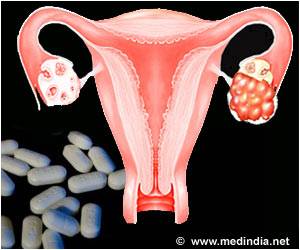The symptoms of ovarian cancer are often vague and can be easily mistaken for other conditions. They include bloating, abdominal or
, difficulty eating or feeling full quickly, and urinary symptoms such as urgency or frequency. Women who experience these symptoms for more than a few weeks should speak to their healthcare provider. As a result, ovarian cancer is often diagnosed at a late stage, making it more difficult to treat. This is why early detection is so important.
Several factors can increase a woman’s risk of developing ovarian cancer. These include a family history of the disease, a personal history of breast or colon cancer, certain genetic mutations such as the BRCA1 or BRCA2 gene mutations, and age (women over 50 years are at an increased risk). While some of these risk factors cannot be changed, there are steps women can take to reduce their risk of developing ovarian cancer. These include maintaining a healthy weight, exercising regularly, and avoiding tobacco products.
Advertisement
Screening tests can also help with early detection. The two most common screening tests for ovarian cancer are a transvaginal ultrasound and a CA-125 blood test. However, neither test is foolproof, and they can produce false positives or false negatives. For this reason, the best way to detect ovarian cancer is to be aware of the symptoms and to report them to your healthcare provider if they persist.
Breaking the Stigma: Talking About Women’s Health and Ovarian Cancer
World Ovarian Cancer Day is an opportunity for individuals, organizations, and communities to come together to raise awareness about ovarian cancer and promote education and prevention. There are many ways to get involved, whether it’s by sharing information on social media, organizing a fundraising event, or participating in a community walk or run.
Ways to Support Ovarian Cancer Research and Improve Outcomes for Women with the Disease
One organization that is dedicated to raising awareness about ovarian cancer is the World Ovarian Cancer Coalition. This coalition is made up of ovarian cancer organizations from around the world, and it works to support women with ovarian cancer, raise awareness about the disease, and advocate for better treatments and outcomes. The coalition also provides a platform for individuals to share their stories and connect with others who have been affected by ovarian cancer.
Another way to get involved is to support research into ovarian cancer. While progress has been made in the treatment of ovarian cancer, there is still much we don’t know about the disease. By supporting research, we can better understand the causes of ovarian cancer, develop new treatments, and improve outcomes for women with the disease.
In recent years, there have been significant advances in the treatment of ovarian cancer. These include new chemotherapy drugs, targeted therapies, and immunotherapies. In addition, some women with ovarian cancer may be eligible for clinical trials of new treatments. Clinical trials are studies that test new treatments to see if they are safe and effective treatments. In many parts of the world, access to these resources is limited, and women may face significant barriers to receiving the care they need.
Another important area of focus is improving the quality of care for women with ovarian cancer. This includes ensuring that women receive timely and accurate diagnoses, as well as compassionate and effective treatment from healthcare providers. In addition, efforts can be made to improve the management of side effects and complications of treatment, as well as the provision of supportive care and resources for women and their families.
Finally, it’s important to recognize that ovarian cancer affects women of all ages, races, and backgrounds. While the disease is more common in women over 50, younger women can also be affected. It’s also important to recognize that some populations, such as women of African descent, may be at a higher risk for ovarian cancer than others. By promoting diversity and inclusion in the fight against ovarian cancer, we can ensure that all women have access to the resources and care they need to overcome this disease.
In conclusion, World Ovarian Cancer Day is an important day to raise awareness about ovarian cancer and promote education, prevention, and treatment. Ovarian cancer is a significant health concern for women around the world, and we must work together to fight this disease. Whether it’s by raising awareness, supporting research, advocating for better policies and funding, or simply offering support to women and their families, there are many ways to get involved in the fight against ovarian cancer. By working together, we can make a difference and improve outcomes for women with ovarian cancer.
Source: Medindia



